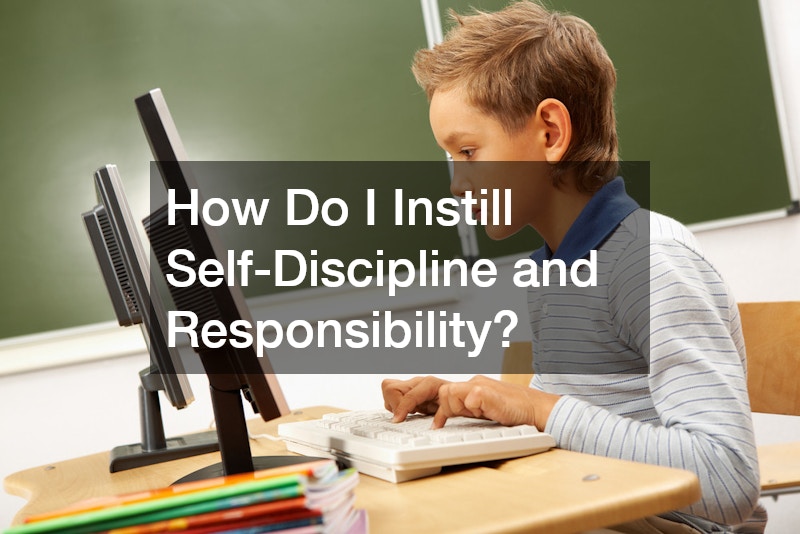Raising children with a strong sense of self-esteem and confidence is undoubtedly one of the most important and rewarding responsibilities that parents can take on. The process of nurturing a child into a confident and self-assured individual starts early in life and is influenced by a variety of factors, including the guidance and support they receive at home. As children grow, they face new challenges, opportunities, and obstacles that can shape their understanding of who they are and their place in the world. A child’s sense of worth is often derived from how they are treated by those closest to them-primarily their parents, this is where effective parenting rules come into play.
Effective parenting rules play a pivotal role in fostering this confidence. The actions, decisions, and communication style that parents adopt can significantly impact how children view themselves, others, and the world around them. It’s not just about offering praise or rewards; it’s about building a nurturing environment where children feel safe to express themselves, where their individuality is celebrated, and where they are encouraged to take risks and learn from both their successes and failures.
In this article, we will delve into the essential parenting rules that can help raise children who are not only confident but also emotionally intelligent, resilient, and equipped to face the challenges life will present. We will explore a variety of strategies and principles, ranging from establishing strong family values to fostering open communication, from creating consistent routines to instilling responsibility and self-discipline. Whether you’re seeking to build your child’s self-esteem, provide them with the tools to manage stress, or encourage independence, this guide offers practical insights and actionable steps to help you raise confident children who are ready to take on the world with self-assurance and determination
What Are the Core Values for Confident Parenting?

Understanding the Importance of Core Values
When it comes to effective parenting rules, one of the most important aspects is establishing a set of core values that will guide your approach. These values will provide a moral compass, helping both parents and children navigate life’s decisions and challenges. For confident children, it is essential that these values are rooted in positivity, respect, honesty, and self-respect.
Identifying Your Family’s Values
As parents, it’s essential to have a clear understanding of what your family values most. This could include things like integrity, kindness, respect for others, or a focus on education. These values are the foundation of how you approach parenting rules and can significantly influence how your child views themselves and the world around them.
Integrating Values into Daily Life
Once you’ve identified your family’s core values, it’s time to integrate them into your daily life. For example, if one of your values is respect, show your children how to respect others through your own actions. If education is a priority, make time to foster an environment that emphasizes learning, whether it’s reading together at night or encouraging curiosity about the world.
Modeling Values for Children
Children learn most effectively by observing their parents or picking things up from authority during childcare. By consistently modeling your values through your actions, you show your children what’s important and how they should approach life. Whether it’s showing kindness to others, taking responsibility for your mistakes, or practicing good hygiene at the dentist, your actions set a precedent.
Revising Values as Children Grow
As children mature and encounter new experiences, your family values might evolve. This doesn’t mean abandoning core principles, but it does allow room for growth. For example, a young child may value immediate rewards, but as they grow, the idea of delayed gratification can be introduced as they learn the importance of hard work and patience.
How Can I Foster Open Communication With My Child?

Creating a Safe Environment for Expression
One of the most effective parenting rules to follow is fostering an environment where children feel safe to express themselves. Open communication is crucial for building trust and confidence. Whether it’s through conversations about their day or more serious discussions about feelings and emotions, creating a space where children feel heard and respected is essential.
Active Listening Techniques
When engaging in conversations, it’s important to practice active listening. This involves giving your child your full attention, acknowledging their feelings, and responding thoughtfully. Active listening shows that you value their opinions, which in turn strengthens their self-esteem.
Encouraging Honest Conversations
Encourage your child to speak honestly about their feelings, experiences, and challenges. Avoid shutting down difficult topics and instead guide them through the process of expressing themselves without judgment. This promotes transparency and helps them feel understood, which is key to fostering a confident mindset.
Use of Positive Language
In conversations with your child, be mindful of your language. Positive language reinforces self-worth and avoids discouraging or belittling your child. Instead of focusing on mistakes, encourage solutions and highlight areas for improvement in a way that inspires confidence.
Avoiding Communication Barriers
Sometimes, parents may inadvertently create communication barriers. This might include being overly critical or dismissive of a child’s feelings. It’s essential to approach your child’s communication with empathy and understanding to prevent child abuse and feelings of inadequacy or rejection.
What Role Does Routine Play in Raising Confident Children?
Establishing Consistent Daily Routines
Routines provide structure and security, which are key to building confidence in children. Establishing consistent routines, such as mealtimes, bedtimes, and school schedules, helps children feel more secure and capable in their daily lives. The predictability of a routine fosters independence and responsibility, which are essential for developing confidence.
Balancing Flexibility With Structure
While routines are important, it’s also crucial to incorporate flexibility. Life is full of unexpected moments, and teaching children how to adapt to changes while maintaining some structure helps them build resilience. This balance ensures that your child’s confidence remains intact, even when things don’t go as planned.
Incorporating Routines for Emotional Development
Routines aren’t just about practical tasks; they also support emotional development. For example, setting aside time each day to talk about feelings or reflect on experiences can help children process their emotions. This builds emotional intelligence, which is linked to greater self-confidence.
Adapting Routines as Needs Change
As children grow, their needs and responsibilities change. Be prepared to adapt your routines to meet these new needs, whether it’s adjusting school-related tasks or encouraging your child to take on new responsibilities. This shows your child that growth is part of the process, and it builds their confidence as they rise to the occasion.
Identifying positive and negative influences on a child’s development is crucial to raising a confident individual. These influences can range from peer pressure and media exposure to the physical environment in which the child lives. In some situations, children may be impacted by family challenges, such as divorce or custody battles, which can affect their emotional well-being and confidence. In such cases, working with a family attorney can help ensure that the child’s best interests are prioritized during legal proceedings. A family attorney can provide guidance on custody arrangements, visitation schedules, and other important matters, helping to create a more stable and supportive environment for your child.
Importance of Routines in Stress Management
In today’s world, stress is inevitable, but routines help children cope with stress in healthy ways. A consistent routine provides a sense of control and reduces anxiety, giving children the confidence to tackle challenges head-on.
How Can I Address External Influences on My Child’s Confidence?
Identifying positive and negative influences on a child’s development is crucial to raising a confident individual. These influences can range from peer pressure and media exposure to the physical environment in which the child lives. Ensuring that the home environment is a safe and healthy space is an essential part of this. Parents can manage some of these external influences, such as addressing potential health concerns within the home. For example, in areas where insects may be a common issue, parents might consider reaching out to professional insect removal companies to ensure that the home remains free from pests. A clean and safe living space helps children feel secure, which in turn supports their emotional well-being and confidence.
Identifying positive and negative influences on a child’s development is crucial to raising a confident individual. These influences can range from peer pressure and media exposure to the physical environment in which the child lives. In some cases, children may experience challenges related to their hearing or other sensory issues, which can affect their confidence. If you notice that your child has difficulty hearing or seems frustrated when trying to communicate, it may be helpful to consult with an audiologist. An audiologist can assess your child’s hearing and help address any issues that may be affecting their ability to interact with others or participate in activities, thus improving their confidence and self-esteem.
How Do I Instill Self-Discipline and Responsibility?

Setting Age-Appropriate Expectations
Effective parenting rules involve setting clear expectations based on your child’s age and abilities. By providing age-appropriate tasks, you help children learn responsibility and understand the importance of fulfilling commitments. For example, younger children can be given small chores, such as cleaning up after meals, while older children can help with more complex tasks, such as organizing their room or assisting with pool installations if the family is working together on home improvement projects.
Teaching Through Natural Consequences
Natural consequences are an effective way to teach responsibility. If a child forgets to complete a task or make their bed, allow them to experience the consequences of that action, rather than stepping in to solve the problem. This helps them learn accountability and encourages growth.
Encouraging Decision-Making Skills
Encouraging children to make their own decisions, whether about what to wear or what extracurricular activities to pursue, helps them build confidence in their abilities. This type of decision-making fosters independence and promotes a sense of ownership over their choices.
Building a Trustworthy Relationship
A strong relationship based on trust is essential for developing self-discipline. When children feel that they can rely on their parents and know that their parents trust them, they are more likely to exhibit responsible behaviors and display confidence in their actions.
Reinforcing Positive Behavior
Reinforce good behavior through praise, rewards, and recognition. This not only boosts your child’s confidence but also motivates them to continue displaying positive behaviors in the future.
What Impact Does Parental Involvement Have on Child Confidence?

Understanding Different Types of Involvement
Parenting rules for involvement in various aspects of a child’s life plays a significant role in their confidence. This includes involvement in academics, extracurricular activities, and even choosing the right educational path, such as private school education or early learning center options that fit your child’s developmental needs.
Balancing Involvement and Independence
While it’s important to be involved in your child’s life, allowing them room for independence is equally essential. By balancing involvement with autonomy, you allow your child to feel both supported and capable of making their own decisions, which is crucial for their development of self-confidence. Consider a fence installation at your home to encourage independent outdoor play.
Supporting Academic and Extracurricular Interests
Supporting your child’s academic and extracurricular interests shows that you value their unique talents and encourage them to pursue their passions. This support helps build confidence by showing your child that they are capable of succeeding in different areas.
Impact of Quality Time on Self-Esteem
Spending quality time with your child helps build a strong bond and reinforces the idea that they are loved and valued. Whether it’s through family outings, visiting the dentist for regular checkups, or enjoying pool installations together, these moments of connection boost your child’s self-esteem.
Recognizing and Celebrating Achievements
Take the time to celebrate your child’s accomplishments, no matter how small. Recognizing achievements boosts their confidence and motivates them to keep striving for success. Whether it’s academic achievements or personal milestones, positive reinforcement goes a long way.
Effective parenting rules play a vital and transformative role in shaping children who are not only confident but also resilient, emotionally intelligent, and self-assured. By consistently applying key principles parents can provide their children with the tools and mindset they need to thrive in life. The foundation of confidence is built early, and the impact of a loving, supportive, and structured home environment cannot be overstated. Children who grow up in an environment where they feel valued, supported, and trusted. They are more likely to develop a positive sense of self-worth that will carry them through life’s challenges and triumphs.
